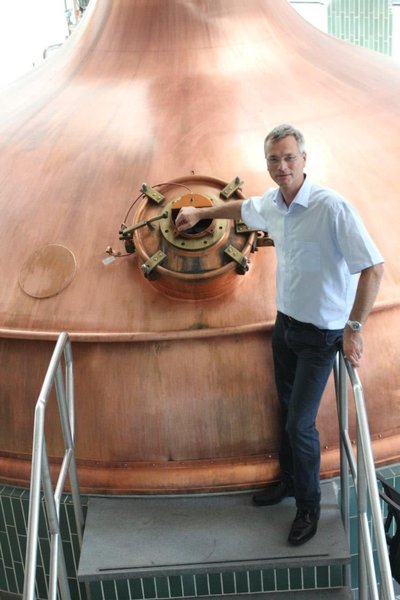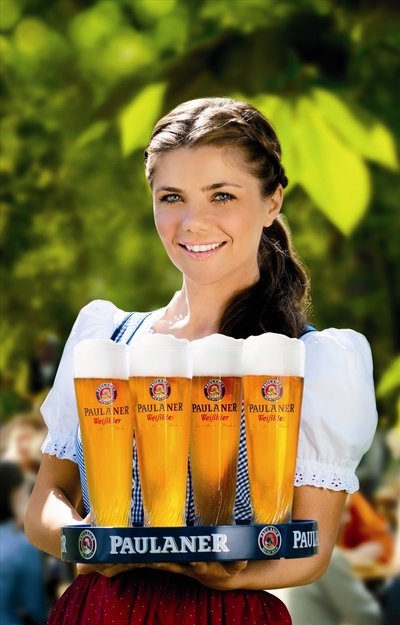The wheat beer phenomenon
Specialty beer is the principal market growth area in countries like Australia, New Zealand and Germany with long-established beer markets. No exception to this is the success of wheat beer.
Initially misjudged as a regional peculiarity in Bavaria, wheat beer is being touted by connoisseurs as a premium alternative to American light lager beers. This success is due in no small part to the master brewers of Munich’s long-established Paulaner brewery.
From niche to a global bestseller
Just a few decades ago, wheat beer was deemed to be something of a rarity even in its Bavarian homeland - and it was virtually unknown in other parts of Germany. This was down to its limited shelf life, which made transportation over long distances impossible. The 400-year-old Paulaner Brewery, with its headquarters in Munich, was one of the breweries to pioneer new methods of transportation while maintaining high standards of quality. Today, the brewery leads the way in the production of wheat beer.
It was here, in fact, that wheat beer was first transferred into barrels, thus making transportation possible. Demand has been rising steadily since then and Paulaner beer specialities are now available in over 70 countries around the globe.
Moreover, over 20 Paulaner brewery pubs have so far been established abroad, all of which have had microbreweries specially imported from Germany.
Wheat beer is traditionally drunk out of tall glasses that are wider at the top so consumers can enjoy the crisp, distinctively smooth, mild and fruity flavour. The effervescent bubbles rise slowly in this shaped glass allowing the charismatic aroma to blend with the wheat beer flavour. The correct pouring technique produces a creamy white head on the amber-coloured, unfiltered and thus cloudy wheat beer.
The wheat beer production process

Wheat beer is not only very different from mainstream lagers in its flavour and appearance, but also in its production process. Nowadays, many breweries place an emphasis on monitoring their production processes. At Paulaner, however, more than 30 master brewers are employed to taste every batch personally.
“Unlike wine tasting, beer actually has to be drunk in order to assess the effects of its freshness in the back of the throat,” explains Martin Zuber, Paulaner master brewer and qualified beer sommelier. “We pour all of our knowledge and enjoyment of beer brewing into every glass,” he adds.
The careful selection of ingredients is also very important when it comes to producing a premium beer. All of the ingredients in the beer specialities, which are brewed and bottled exclusively in Munich, come from the region.
Incidentally, in accordance with the German Purity Law (Deutsches Reinheitsgebot) of 1516 - one of the oldest food laws in the world - only water, hops and malt may be used in the brewing of beer. Paulaner does not use any additives.
International demand for handcrafted beer
Demand is increasing worldwide for ‘craft beer’ - hand-crafted, high-quality beer. Trends show that consumers are increasingly considering the variety of flavours, quality and naturalness when they buy beer and are also keen to know where their beer was made.
Paulaner Brauerei

Paulaner Brauerei was founded by monks in 1634. Originally the friars brewed beer exclusively for their own use. The company has a staff of roughly 670 employees who brew 2.9 million hectolitres of beer each year.
Six beverage trends predicted for 2026
Demand for customisation, 'protein-ification' and sustainable storytelling are some of...
Making UHT processing less intensive on energy
A nutritional beverages company was seeking a more sustainable way to produce UHT beverages using...
Tasty twist for chocolate alternatives
Food scientists develop two novel flavour-boosting techniques to transform carob pulp into a...








